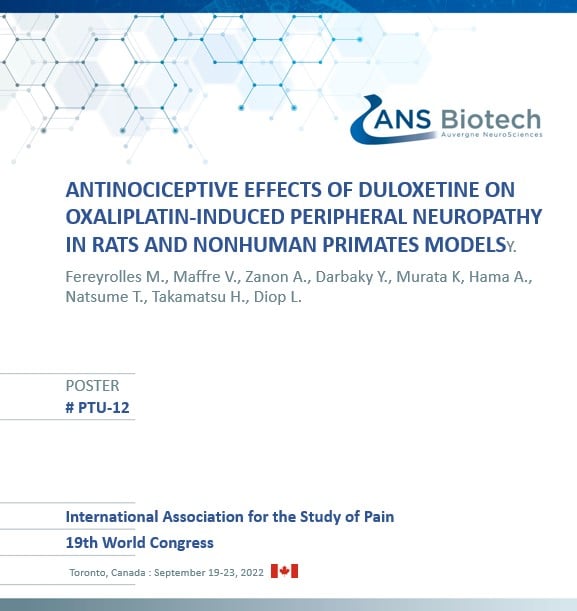
Oxaliplatin is a third-generation platinum-based chemotherapy drug widely used in the treatment of advanced metastatic colorectal cancer. Its use is limited by a cumulative and chronic neurotoxicity, characterized by dysesthesia and paresthesia in the distal extremities, spontaneous pain and loss of sensation. In nonhuman animals, oxaliplatin treatment produces significant behavioural nociceptive signs (cold allodynia), consistent with clinical symptoms. Duloxetine, a serotonin-norepinephrine reuptake inhibitor, approved for use in “major depressive disorder” and painful diabetic neuropathy, has demonstrated moderate efficacy in reducing painful oxaliplatin-induced neuropathy. The objective of this study was to assess antinociceptive effects of a single oral administration of duloxetine in oxaliplatin-induced cold allodynia in the rat and non-human primate models of oxaliplatin induced neuropathy.
